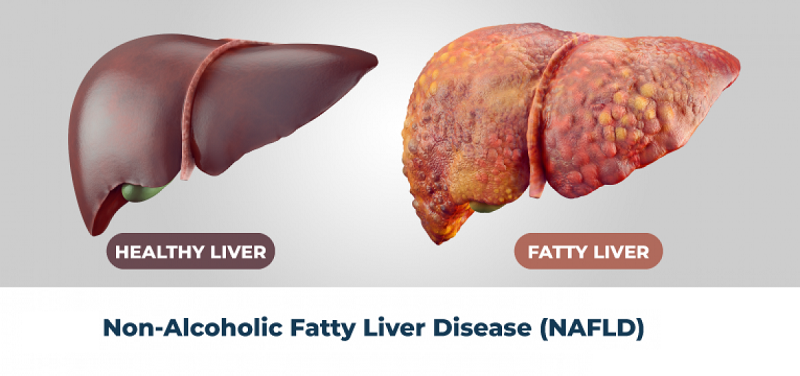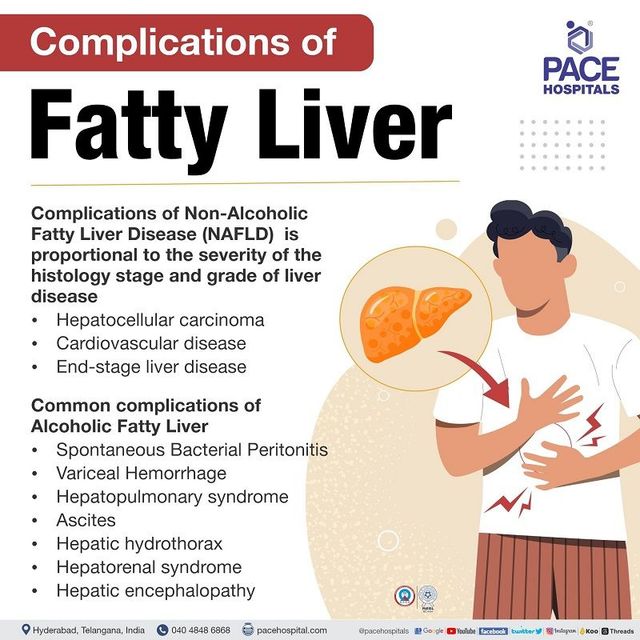Understanding Fatty Liver


Introduction

Fatty liver, also known as hepatic steatosis, is a condition characterized by the accumulation of fat in liver cells. This can impair liver function and lead to various health problems. Understanding the causes, risks, and management of fatty liver is crucial for maintaining good liver health.
Causes of Fatty Liver

Eating excess calories causes fat to build up in the liver. When the liver does not process and break down fats as it normally should, too much fat will accumulate. People tend to develop fatty liver if they have certain other conditions, such as obesity, diabetes or high triglycerides.
Fatty liver can result from a variety of factors. It is broadly categorized into two types:
- Non-alcoholic Fatty Liver Disease (NAFLD): Associated with obesity, insulin resistance, and metabolic syndrome.
- Alcoholic Fatty Liver Disease: Caused by excessive alcohol consumption.
Risks and Complications

Having fatty liver can lead to serious health complications. It can progress to non-alcoholic steatohepatitis (NASH), cirrhosis, and even liver failure. Additionally, fatty liver increases the risk of cardiovascular disease and type 2 diabetes.It may also lead to more serious chronic liver disease, such as cirrhosis or liver cancer. Some people who develop severe cirrhosis of the liver need to have a liver transplant. People with fatty liver have an increased risk of heart attack and stroke.
Diagnosis and Monitoring
Fatty liver is typically diagnosed through blood tests, imaging studies (ultrasound, MRI, CT scan), and sometimes a liver biopsy. Regular monitoring of liver function is important, especially for individuals with risk factors for liver disease.
Managing Fatty Liver

Effectively managing fatty liver involves lifestyle changes and, in some cases, medication. Strategies may include:
- Adopting a balanced, nutrient-dense diet
- Engaging in regular physical activity
- Maintaining a healthy weight
- Avoiding excessive alcohol consumption
- Managing underlying conditions like diabetes and high cholesterol
Treatment

Fatty liver is a common condition that can have serious consequences if left unmanaged. Understanding the causes, risks, and effective management strategies is essential for maintaining good liver health. By making positive lifestyle changes and working closely with healthcare providers, individuals can take control of their liver health and reduce their risk of complications.
Lifestyle Modifications

1. Dietary Changes: Adopting a balanced, nutrient-dense diet is crucial. Limiting the intake of saturated fats, added sugars, and processed foods can help reduce fat accumulation in the liver. Incorporating more fruits, vegetables, whole grains, and lean proteins is recommended.
2. Weight Management: Achieving and maintaining a healthy weight is essential. Gradual weight loss, if overweight or obese, can significantly improve liver health. However, crash diets or rapid weight loss should be avoided.
3. Regular Exercise: Engaging in regular physical activity helps with weight management and improves insulin sensitivity. Aim for at least 30 minutes of moderate exercise most days of the week.
Medical Interventions
1. Medications: In some cases, healthcare providers may prescribe medications to help manage underlying conditions or to target specific aspects of fatty liver. These may include medications to control cholesterol, manage diabetes, or reduce inflammation.
2. Antioxidant Supplements: Antioxidants like vitamin E have shown promise in reducing liver inflammation and damage. However, supplements should only be taken under the guidance of a healthcare professional.
Avoidance of Harmful Substances
It is crucial to avoid or limit the consumption of alcohol and refrain from using recreational drugs. These substances can exacerbate liver damage and hinder the effectiveness of treatment efforts.
